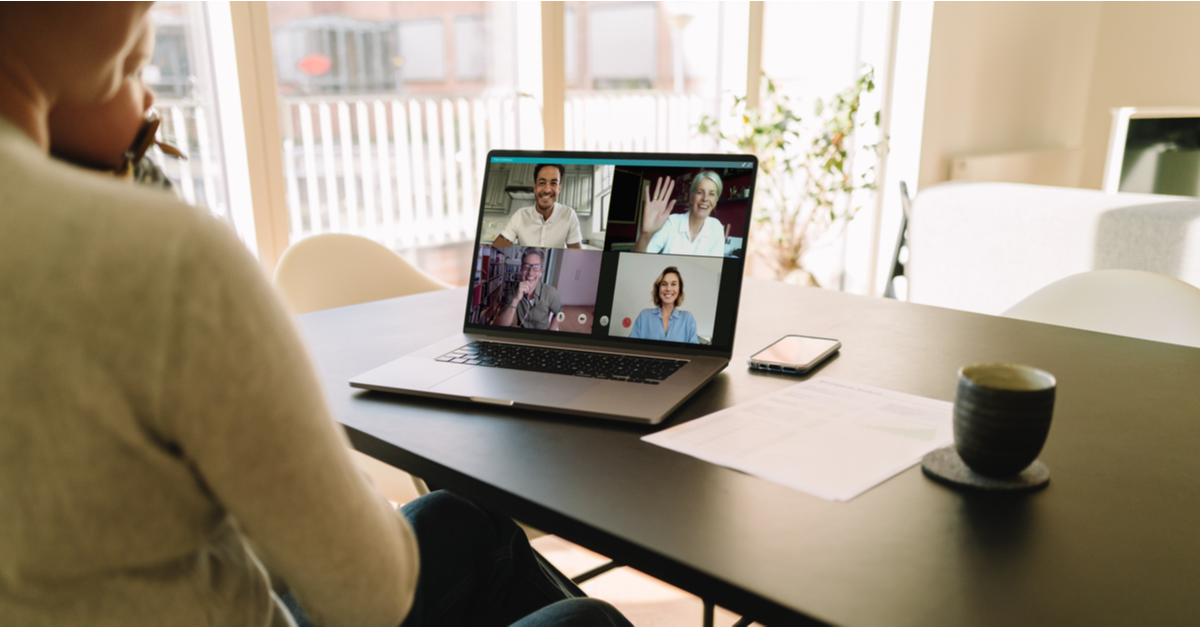10 Trending Finance Web Searches for Summer 2020
Updated: 3/16/2023

Kylie Ora Lobell is an award-winning writer and the president of KOL Digital Marketing. She has over 10 years of experience writing about personal finance, legal and business, with bylines...
Advertising & Editorial Disclosure
Advertising & Editorial Disclosure

Kylie Ora Lobell is an award-winning writer and the president of KOL Digital Marketing. She has over 10 years of experience writing about personal finance, legal and business, with bylines...
Currently, many people are uncertain about their financial stability. They don’t know what’s around the corner because of COVID-19.
This summer, with one shutdown behind them and possibly more in the future, people are looking for timely financial information and guidance. They’re searching for home buying topics, how to save money, how to spend money wisely, how to invest in Black-owned businesses and whether or not they can make an early 401(k) withdrawal. Mortgage forbearance is a popular search, likely because 2 million loans were in forbearance during the first week of April, according to Marketplace.
Because these are some of the top questions and phrases people are searching the internet for answers to, you’re probably also thinking about some of them. You can discover what other financial concerns and interests people are focused on right now and get answers.
These 10 trending personal finance-related web searches have shown increased interest and popularity lately. In most cases, they are a reflection of the times in which we are.
1. Will Mortgage Forbearance Hurt My Credit Score?

Mortgage forbearance occurs when your lender lets you temporarily pause your mortgage payments or agrees to reduce them for a specified period. People are asking about mortgage forbearance right now because they may have lost their job during COVID-19 and are currently unable to make their regular payments.
Other questions people are asking about mortgages include: “How long do mortgage lenders allow you to defer paying your mortgage?” and “Is there a penalty for deferring payments?” They are also asking if deferred payments must be made in a lump sum when the mortgage forbearance period ends.
With the coronavirus relief bill in place, borrowers with federally backed loans can request a 180-day mortgage forbearance and one 180-day extension. They may also be able to get late fees waived, have late-payment reporting to credit bureaus suspended and be given more affordable ways to make payments following the end of their mortgage forbearance agreement.
If you’re in a situation where you can’t pay your mortgage, regardless of whether or not you have a federally backed loan, you need to contact your lender as soon as possible to determine if you qualify for a mortgage forbearance agreement. Being proactive and contacting your lender shows you’re serious about keeping your house. Your lender can brief you on the terms you’ll need to meet and whether you need to pay a lump sum at the end of the agreement or extend your loan period.
2. What Is the Minimum Down Payment for a Home?

COVID-19 forced people to shelter inside. For some, that meant staying in a tiny and cramped apartment for months, and now they want more living space. According to USA Today, people are looking at buying homes in the suburbs, where they have more land and space between their home and their neighbors’ properties.
It makes sense that potential home buyers would take to Google to determine how much of a down payment is needed to purchase a home. A minimum down payment is the money you need to come up with to get a mortgage loan. With a conventional loan, you need anywhere from 3% to 20% of the purchase price. With a government-backed loan, such as an FHA loan, you need 3.5%.
People may be wondering how to save up money to buy a home in the first place and what kind of interest rates they will pay on their mortgages and for what period.
A related question that’s coming up is, “Can you buy a house with no money down?” The short answer is maybe. If you qualify for a USDA loan — which requires that you buy a home in certain suburban or rural areas — or a VA loan if you’re an active-duty service member, veteran, the spouse of a deceased veteran or a member of the National Guard, you may be able to qualify for a no-money-down home loan. That doesn’t mean you can come to your escrow closing with no money, however. There are usually closing costs that you will need to pay.
3. Is There a Car Insurance Discount for Driving Low Mileage?

At the peak of the COVID-19 crisis, gas prices dropped because many people stayed at home and so did their cars. With the drop in driving, some of these drivers came to the thought: “Why should I pay my high car insurance premium right now?”
They may have also started looking for car insurance discounts because they lost their income and could no longer afford higher premiums. Perhaps they sold their expensive cars in favor of something more practical and wanted to see what kind of car insurance discount for which they’d qualify.
One of the types of car insurance discounts available from some companies is a low mileage discount. A low mileage car insurance discount is a break on your premium price if you drive less than the average person. For instance, if you drive less than 12,000 miles per year, you could earn a 5% to 10% car insurance discount. If your car has been sitting in your garage, you could look around, get some quotes and switch insurance providers to find cheaper car insurance.
4. What Are the Best Cash-Back Credit Cards for 2020?

Another one of the top searches at this time relates to the best cash-back credit cards.
Cash-back credit cards are rewards credit cards where you get a certain percentage of your spent money back in the form of cash in your account. For example, you could sign up for a cash-back card that rewards you $10 for each $1,000 you spend. There are many different kinds of cash-back cards out there, so you may need to do some sleuthing to determine which one is the best deal for you. You should look for cards that provide rewards in categories where you spend the most money, such as groceries, gas, travel and entertainment.
Since many people are unemployed right now, they could be looking for more bang for their buck with their credit cards. Instead of using credit cards that just put them into deeper debt, consumers can find cards that offer cash back and put that cash towards their monthly bill.
Some related questions people may be asking are, "which cash-back cards have the best terms," and "how much interest will I pay on a cash-back credit card?" The terms of the best cash-back credit cards depend on your credit score and history, which you can look at for free on Experian.com.
5. How Can I Invest Ethically?

Social and environmentally ethical investing happens when you invest in companies committed to bringing about positive social change and contributing to the sustainability of the planet. For example, you might want to invest only in companies that donate a portion of their sales to a social justice organization or a company that only uses recyclable goods when making their products.
People are searching for these terms right now due to the rise of the Black Lives Matter movement and other social justice causes. They want to learn how to invest in companies and funds that share their ethical values and avoid companies that give money to certain politicians or have engaged in dealings antithetical to their values. For instance, they might not want to invest in a fast-food company that adds money to politicians' coffers who they don't agree with.
People are also looking for nonprofit organizations to donate to and trying to learn what kind of tax breaks they can get for donating or investing in these organizations.
People are searching on phrases such as "How can I invest ethically?" and "What are ESG funds?" ESG stands for environmental, social and governance factors. It means that investors evaluate companies based on how sustainable they are, how ethical their practices are and how committed they are to social causes. To find ethical and ESG investments, you can look into the top ESG companies provided by Investor's Business Daily.
6. How Can I Support Black-Owned Businesses?

Because social equality for people of color is essential to many people, they want to find ways to show their support for the Black community. They can do this by investing in businesses owned by Black people and purchasing goods and services from these companies.
To invest in or purchase from Black-owned companies, you can look up lists of Black-owned businesses to support. If a Black-owned business is public, you can buy stock in it as an investment. If not, you'll have to wait until it becomes public and support them by making purchases in the meantime. You can always reach out and see if there are private funding opportunities as well.
Another popular related search right now is, "Where can I find grants for Black-owned businesses?" If you are a Black entrepreneur, then you can find minority grants through the following:
- Minority Business Development Agency
- Magic Johnson Enterprises/MBE Capital Partners
- BlackBusiness.com
7. What Is the Difference Between a Money Market Account and a Savings Account?

People are stashing money away at the moment just in case they lose their jobs. They want their money to work for them, so they are looking into high-yield, compounding savings accounts and money market accounts. There are some critical differences between the two.
While money market accounts used to offer higher interest rates, high-yield savings accounts are now catching up, and the rates are on par. A money market account is a hybrid of a checking and savings account, giving you the ability to write checks and withdraw cash. There is usually a high minimum balance required to earn that interest. With a savings account, you typically don't need a minimum balance. They are both FDIC insured.
You can find various types of money market accounts and savings accounts online, and you don't have to go with one offered by your bank. You should be able to transfer money into your new account via direct deposit. Remember to read all the terms and conditions like how many transfers you can make per month, how much it costs to withdraw funds at an ATM and the minimum amount of money you need to be depositing to earn interest on your cash.
8. How Can I Start an Investment Club?

According to the SEC, an investment club is a group of people who bring money to the table and invest it together. You could get together a group of friends, decide how much you each want to invest, research different companies to invest in and take a vote to determine which companies in which you're going to invest.
People may be asking about investment clubs right now because they want to invest, but they don't have enough knowledge about what to invest in and could benefit from having friends help with research. Since they're thinking long term, they may want to invest their money in case they lose their job and need a backup plan.
Other popular related questions include: "Are investment clubs good?" and "What is real estate crowdfunding?" Investment clubs are good as long as you trust the people within it and establish rules for voting.
You could also do real estate crowdfunding, which involves looking on the internet and social media sites for real estate investing opportunities. It's a way to get in on the real estate market without purchasing a property of your own. Be sure to do your research and due diligence, so you don't run into any investment scams.
9. Can I Use My 401(k) Early?

Some people may be scrambling for money after losing their jobs during COVID-19, so they're considering making a 401(k) withdrawal. Unfortunately, you may have to pay a 10% early withdrawal fee if you aren't at least 59 1/2 years. The penalty can be waived if you leave your job when you turn 55 years old or after or take out withdrawals under the substantially equal periodic payments rule. However, the terms of these exceptions can be a bit complicated, and you might get the least retirement payout available.
Fortunately, the coronavirus relief bill allows you to access up to $100,000 of your retirement funds "without being subject to early withdrawal penalties and with an expanded window for paying the income tax they owe on the amounts they withdraw," according to the SEC. You may want to take advantage now if you need that money.
People may also be searching for ways to modify their 401(k)s or take advantage of 401(k) matches from their companies — anything that will boost their retirement accounts during this time.
10. How Can I Get a Car Loan With Bad Credit?

If people have bad credit, they may have a rough time finding a good car loan. However, if they're moving to the suburbs due to COVID-19 and need a car or are looking for a cheaper car because they lost their job, they may need to find a car loan for bad credit.
You can always shop around for car loans for bad credit, but be aware of predatory lending practices. If the interest rate and penalties are sky high, then you should work on improving your credit as fast as possible to find a better loan or refinance at a lower interest rate. You can increase your score by making payments on time, paying down high-interest debt and keeping your credit utilization rate below 30%.
Some people may also ask how they can purchase a car without a loan or what their options are in terms of leasing. They can always go to a car dealership and look into different types of car purchasing options before making a decision.
How to Get Your Financial Questions Answered
You may be struggling financially right now or worried about your financial stability in the future. That's OK; most people are going through the same thing. While researching on Google is great, make sure you look at the "people are also asking" section and read multiple websites before making any decisions.
You can also put in your search term with "+Reddit" as well as look on social media sites to gain insight into people's firsthand experiences.
By taking the time to do your research, you can figure out the best financial move going forward to ensure you will be set up for financial success in the months and years ahead.
About the Author
Kylie Ora Lobell is a writer for MoneyGeek and an editor, marketer and publicist. She has over 10 years of experience writing in the personal finance, legal and business space for publications and brands like Legal Management Magazine, LegalZoom, Forbes, EMC, IBM, Dell, Mastercard, Visa and NCR. Her bylines include The Washington Post, The Los Angeles Times, The Jewish Journal of Los Angeles, New York Magazine and Time Out NY/LA. Her website is KylieOraLobell.com.
Sources
- BlackBusiness.com. “Top Black and Minority Business Grants and Funding Opportunities.” Accessed July 1, 2020.